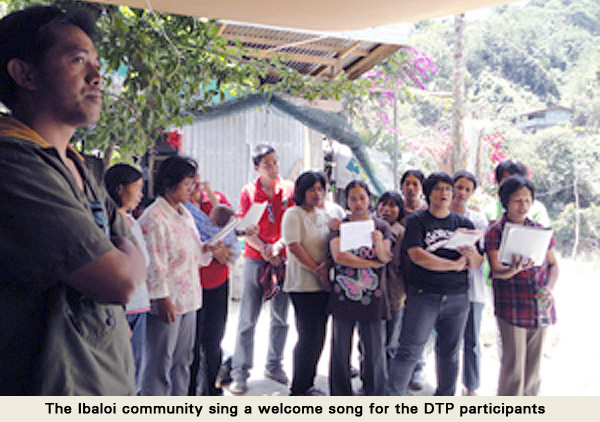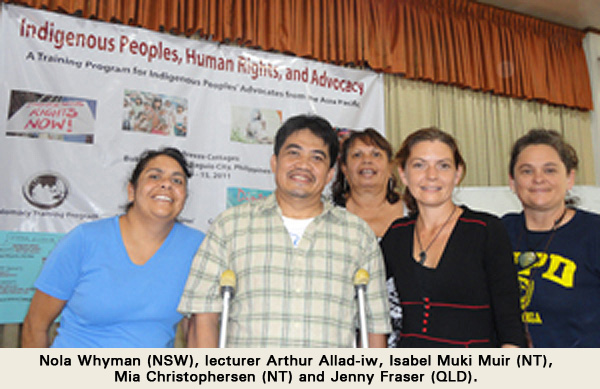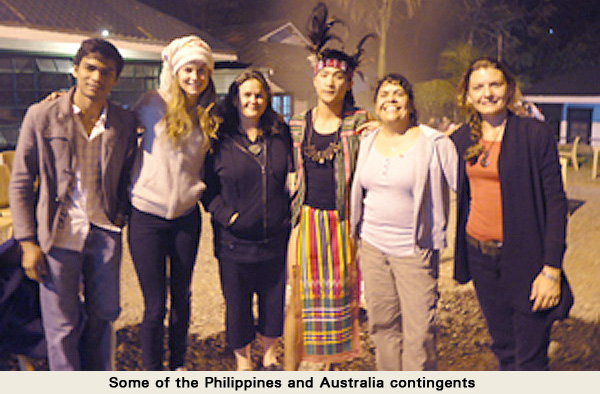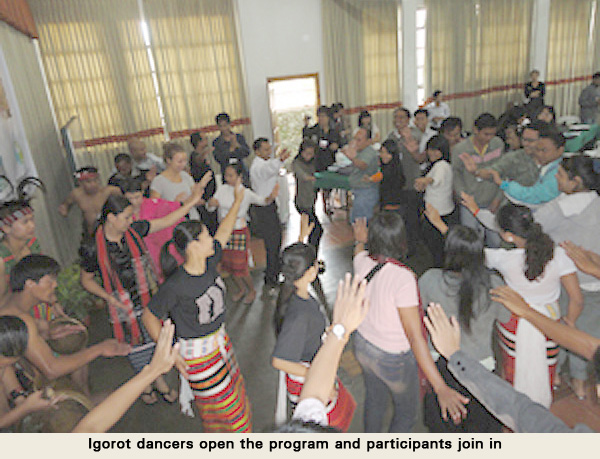

The Indigenous Peoples, Human Rights and Advocacy Program ran from April 6 to 15 with forty-one participants assembling in Baguio City from fourteen countries[1] across the Asia Pacific Region. Run by the Diplomacy Training Program (DTP), which is a small Non-Government Organization affiliated with the Faculty of Law, University of New South Wales in Sydney, Australia[2]. It has been running Human Rights and Advocacy training programs for 21 years, being founded in 1989 by José Ramos-Horta, the 1996 Nobel Peace Laureate and President of Timor-Leste. Bougainville participant Barbara Tanne says “The training is really useful because it has brought together like-minded people with the same focus and strengthened working alliances between countries throughout the Asia Pacific Region.”
The vast regions of Asia contain the majority of the world’s present-day Indigenous populations, about 70% according to IWGIA[3] figures. The Luzon region in the Northern Philippines is the home of a high population of Indigenous Peoples, generally known as Igorot with Baguio City being an ideal place for the international gathering of cultural representatives. The Diplomacy Training Program was held at Pine Breeze Cottages and hosted by local group Dinteg, the Cordillera Indigenous Peoples Legal Center who organised an excursion to Labey where participants interacted with the local Ibaloi community who have been displaced by the Ambuklao Dam, not compensated and continue to suffer economically and culturally as a result.

Indonesian activist and filmmaker Glorio Sanen, a participant from West Kalimantan says “Merdeka means freedom. Standing up can allow us to be free, standing up for justice is our Human Right. We see people are being violated of their rights and our ambition to stand up for our rights has come from the deaths of our peoples. We are left with the tough questions – where is the human rights of the people? Will there ever be justice for all? Well the answer to that is in our Heart.”
Indigenous Peoples are considered the deprived and less privileged people around the world. These people are treated as second class citizens in most of the Asian countries like India, Bangladesh, Sri Lanka, Pakistan, Indonesia, Malaysia, Myanmar, Cambodia, Vietnam, West Papua, Philippines, and Nepal. Indigenous Peoples from across the Asia Pacific are struggling for their basic and fundamental rights, but still fail to realize their rights entitled under the International Human Rights Declaration, UNDRIP and International Human Rights bills.
For paying lip services to the Indigenous peoples, local governments of these countries have promulgated the laws and constitutions, but their implementation is still questioned. The most demanding issues Indigenous peoples are facing are militarization, forced displacement, illegal detainment, disappearance, extrajudicial killings. Access to water, education and right to health, housing and work are still day-dreams for them. The resources Indigenous peoples have possessed since their ancestors are either occupied by states or allocated to corporations and multinational companies, resulting in them losing their land, forest and local livelihood options. Forty-one Human Rights Defenders from 14 countries are training to advocate the rights of Indigenous Peoples, so that their rights can be promoted and protected.

Related Article:
 Home | Aims and Objectives of Solidarity Philippines Australia Network | About Kasama
Home | Aims and Objectives of Solidarity Philippines Australia Network | About Kasama 
Search the SPAN Web